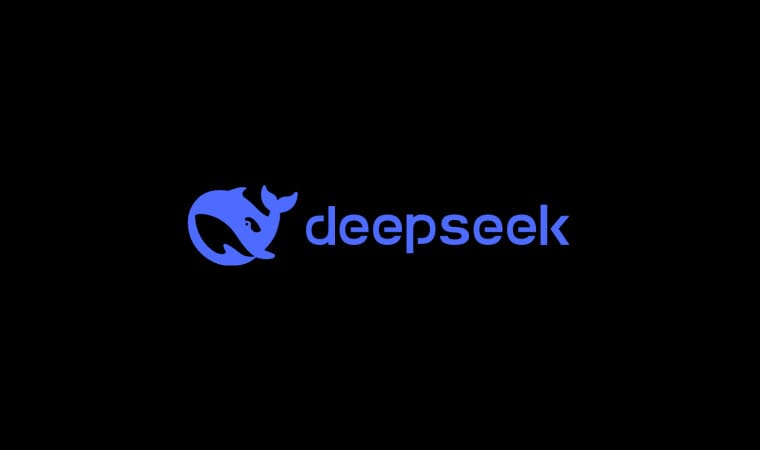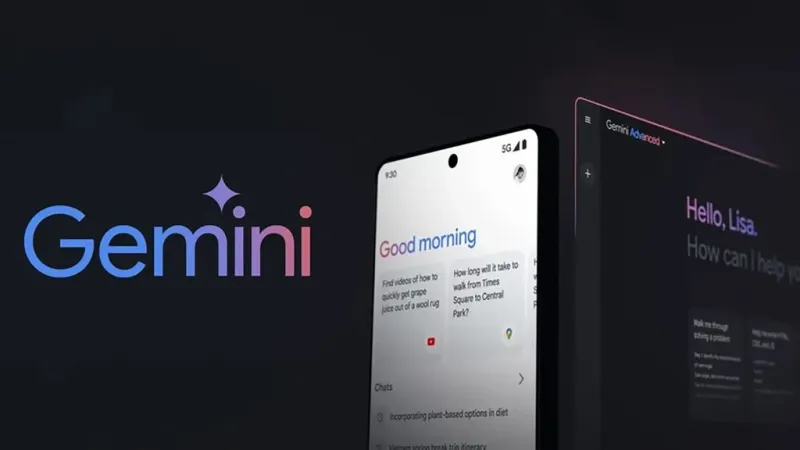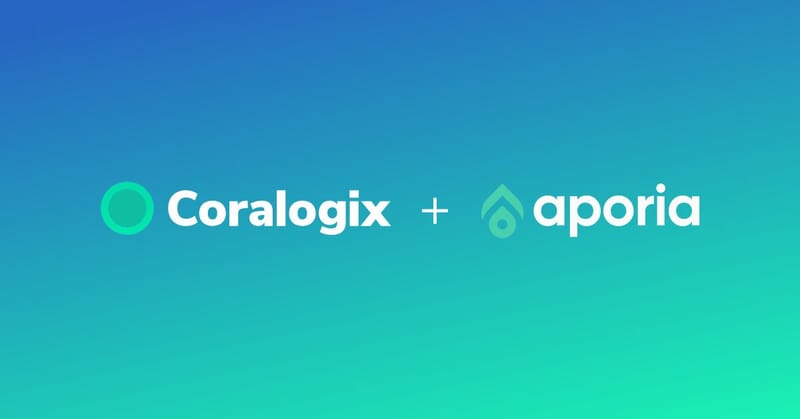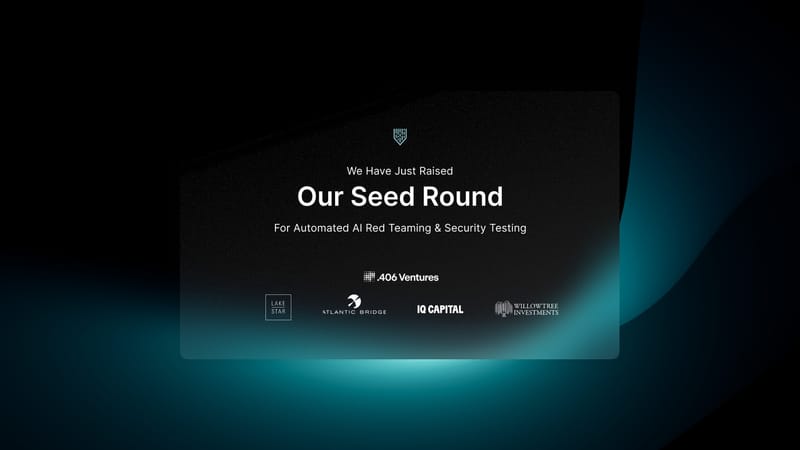This week in AI: February 18-24
Bioptimus is building the world's first universal AI foundation model for biology; Google halted Gemini's people-generation capabilities, launched Chrome AI-powered experimental features, and Gemini for Workspace plans; Dating app company Match Group announced OpenAI partnership
Every weekend, we bring together a selection of the week's most relevant headlines on AI. Each weekly selection covers startups, market trends, regulation, debates, technology, and other trending topics in the industry.
Bioptimus is building the world's first universal AI foundation model for biology
Led by co-founder and CEO Professor Jean-Philippe Vert, who is also Chief R&D Officer of Owkin and former Research Lead at Google Brain, Bioptimus is powered by a world-class team of Owkin scientists and former Google DeepMind members. The startup has emerged from stealth after raising $35 million in a successful seed funding round led by Sofinnova Partners and supported by Bpifrance Large Venture, other France-based funds, including Frst and Cathay Innovation, and additional tech investors. Bioptimus will profit from Owkin's proprietary multimodal patient data sourced from leading academic hospitals and computing resources provided by Amazon Web Services (AWS) to create computational representations of the laws of biology. Bioptimus expects that this first-of-its-kind AI foundation model for biology will enable it to drive innovation in biotechnology and health and life sciences forward.
Google halted Gemini's people-generation capabilities due to historical inaccuracies
A little more than a week after the announcement of the next-generation Gemini 1.5 model, Gemini unexpectedly managed to overshadow itself due to a problematic tendency to produce historically inaccurate depictions of people. In one notable example, upon being prompted to generate a picture of the US Founding Fathers, Gemini represented them as Native American, Black, and Asian. Google quickly acknowledged the issue and posted an official statement on its Communications account on the social media platform X. In the statement, Google recognizes that although the capability to represent a wide range of people is desirable, the historically inaccurate generated images were concerning and required immediate attention. Thus, the company decided to pause Gemini's people-generation capabilities until an improved version can be released.
"Help me write" is Chrome's new experimental feature designed to help users write content online
The "Help me write" feature was initially announced a month ago along with a pair of AI-powered experimental features: a tab organizer and a theme generator. Starting with the most recent Chrome release, English-speaking users in the US can experiment with the feature. "Help me write" harnesses the capabilities of the Gemini models to help users start writing a new text or refine an existing one. The tool understands the context of the website the user is writing in to suggest relevant content to, for instance, write sales advertisements, different kinds of reviews, or even fill out contact forms. To try the "Help me write" feature out, Chrome users need to select "Settings" in the three-dot menu and navigate to the "Experimental AI" setting to enable the tool. Once enabled, "Help me write" should be available via a right-click on any website text box or field.
NVIDIA released Q4 and Fiscal 2024 financial results
The company reported $22.1 billion in revenue for Q4, which ended on January 28, 2024. The reported revenue represents a 22% increase from the previous quarter and a 265% increase compared to last year. NVIDIA also reported a fiscal 2024 revenue of $60.9 billion, up 126% from last year. Moreover, it expects a $24 billion revenue for fiscal 2025, plus or minus 2%. The announcement of NVIDIA's revenue results also highlights the company's achievements in its data center, gaming, professional visualization, and automotive areas, where it highlights events such as the optimizations to its data center, performed in collaboration with Google, for the latter's open-source Gemma language models, or the recent tech demo Chat with RTX release. The full details of the results are available in NVIDIA's press release.
DatalogyAI is democratizing the data curation process so anyone can train better models
DatalogyAI is a startup born out of the recognition that most of the research on effective data use is exclusive to the largest foundation model labs. The company's goal is to reverse this trend by offering data curation as a service: rather than having companies train models on a random subset of a large amount of unstructured data, DatalogyAI manages the whole process of data curation, automatizing every stage of the process: from identifying the most informative data, its complexity and the redundancy needed, to balancing, augmenting and ordering the data before constructing batches for training. DatologyAI recently completed an $11.65M seed round led by Sarah Catanzaro and Mike Dauber from Amplify Partners, with the participation of Radical Ventures, Conviction Capital, Outset Capital, Quiet Capital, and several angel investors. The startup is also actively hiring to grow its team.
Additional Galaxy devices are getting access to Galaxy AI via Samsung's One UI 6.1 Update
Starting this March, the Galaxy S23 series, S23 FE, Z Fold5, Z Flip5, and the Tab S9 Ultra, Tab S9+, and Tab S9 devices will join the exclusive AI experience of Samsung's Galaxy S24 series. The 6.1 Update is the first step towards the mission of bringing Galaxy AI to over 100 million users this year. Galaxy AI is a suite of generative AI tools, including:
- Circle to Search (with Google), a tool that lets users obtain intuitive search results with a circle hand gesture.
- Live Translate, a tool that offers real-time translation voice and text translation for phone calls; and Interpreter, which enables live translation of spontaneous conversations using the split screen feature.
- Chat Assist helps users adjust tone and translate messages in 13 languages using the Samsung Keyboard.
- Note Assist, Transcript Assist, and Browsing Assist introduce AI-powered note-taking, summarization, and transcription features.
- Generative Edit and Edit Suggest provide generative AI tools for easy and fast photo editing.
Google announces Gemini for Workspace plans for enterprise teams of all sizes
The new Gemini Business and Enterprise add-ons are built around the recent availability of an enterprise-grade standalone Gemini chat experience. This standalone chat builds upon the innovations introduced in the consumer-directed Gemini Advanced experience, leveraging Gemini 1.0 Ultra and augmented with enterprise-grade data protection and copyright indemnification. With these additional measures in place, teams of all sizes can chat directly with Gemini and take advantage of the chatbot's research, summarization, and generative capabilities to turn it into the ultimate research or editing assistant, creative partner, customer service assistant, and more.
The Gemini Business add-on enables smaller teams to access Gemini on the Workspace apps and chat with Gemini in the standalone experience. Business pricing starts at $20 monthly per user with a yearly commitment. The Enterprise add-on pricing starts at $30 monthly per user with a year's commitment. It includes everything in the Business add-on and incorporates AI-powered meetings, featuring captioning in 100+ language pairs and upcoming note-taking features. Google's privacy, confidentiality, and security commitments apply to the Gemini add-ons, which means that conversations with Gemini are not used for advertisement, are not human-reviewed, or used for training purposes.
VectorShift raises $3 million in funding to simplify LLM application development with its modular no-code approach
The $3 million was raised from 1984 Ventures, Defy, Formus Capital, and Y Combinator. VectorShift plans to use the funding to transform its approach into the go-to, all-in-one platform to build and deploy enterprise-ready LLM applications, agents, and automation. VectorShift's platform modularizes the essential components of LLM applications through no-code and SDK interfaces. Databases and tools can be easily connected to various open and closed-source models to import data to a vector store. A drag-and-drop interface lets users build a pipeline to specify how the data will lead to the intended application. VectorShift also features a library of components and templates ready to be customized with the users' data. Once the application is finalized, VectorShift also assists with the deployment process.
The company has not disclosed the number of clients it currently serves. Moreover, similar solutions, such as LangChain and Datasaur, already exist in the market. Regardless, VectorShift is confident it can differentiate itself enough from these providers to become a leading enterprise-ready LLM building and deployment solution.
The dating app company Match Group announced a partnership with OpenAI
The initial step in the partnership brought over a thousand ChatGPT Enterprise licenses to Match Group employees. According to Match Group, the company is now a workplace "where ChatGPT is the new coffee machine," with employees leveraging the chatbot to assist with repetitive coding, communications, analysis, and template-building tasks. The press release, written by ChatGPT and edited by the Match Group Corporate Communications team, also promises that the technology will be used responsibly, ensuring that the tools are used in a way that preserves users' privacy. Match Group hinted at the possibility of using AI to augment trust and safety features and perfect match-making algorithms as a first step towards a long-term collaboration with OpenAI.
Orbital Materials raised $16M in Series A funding
The Series A brings Orbital Materials' total funding to nearly $21 million raised in less than 18 months. Orbital Materials' approach to materials science is based on LINUS, an AI foundation model customized for materials science. The model is currently the driving force behind the development of a pipeline bringing industry closer to carbon-neutral energy. Orbital Materials aims to remove the obstacles to materials discovery represented by traditional trial-and-error methods through a process similar to the revolution AlphaFold ignited for protein research. Besides being a former lead in AI for materials science at DeepMind, CEO and co-founder Jonathan Godwin heads a team of machine learning and chemistry experts from industry-leading companies, such as Allen Institute for AI, Mosaic Materials, BASF, and Zeochem. The company has pledged to publicize more details about its active pipeline and carbon removal product over 2024.
Qloo, a leading AI platform on culture and taste preferences, raised $25M in Series C funding
Qloo provides renowned brands with insights into customers' tastes and preferences by employing an AI-powered engine to identify connections between pieces of accurate behavioral data from consumers worldwide without using personally identifiable information. It is also the parent company of TasteDive, a recommendation engine and community that enables users to discover cultural products suited to their preferences. The Series C funding round, led by AI Ventures, with participation from AXA Venture Partners, Eldridge, and Moderne Ventures, will be invested in developing Qloo's self-service platform later this year. This new service will place consumer and taste analytics within the reach of small and mid-size enterprises and individuals.
Lisbon-based AssetFloow is the new leader in AI-powered customer behavior forecasting
AssetFloow is developing a sensorless AI behavioral software that requires no cameras or devices to provide accurate metrics and forecasting in retail and fast-moving consumer goods. The company's AI architecture, Dynamic Network Flow (DNF), has overtaken models such as Google's WaveNet (2016), Yandex's CatBoost (2017), Meta's Prophet (2017), and Amazon's DeepAR (2018). Co-founder and CTO Ricardo Santos did a DFN test run in 2022, training the model on stock portfolio optimization. DFN achieved a lower risk score than eToro's top three traders, achieving 79% of profitable weeks.
Shortly after the test run, AssetFloow closed a €1.5 million investment in March 2023 to continue to apply its models to the retail sector to address the inventory issue known as the Ghost Economy. Inadequate forecast models contribute to the current food waste problem. Santos explained that lowering the price of food with nearing expiration dates is not a sustainable solution to the food waste problem. Indeed, AssetFloow started its path in retail driven by the belief that transparent and accurate forecast models will contribute to eliminating overstock and out-of-stock issues.
Adobe introduced a new AI assistant in Reader and Acrobat
Adobe's conversational generative AI engine is in the beta stage. The assistant integrates into the Reader and Acrobat workflows to summarize, generate insights, answer questions, and format information from long PDF documents. Adobe calculates that with the introduction of the AI assistant, users worldwide will be able to leverage the value contained in the about 3 trillion PDFs currently in the world. The AI assistant is based on Adobe's Liquid Mode, the artificial intelligence and machine learning models that also power the responsive reading mode in Adobe's mobile PDF solutions. Once the AI Assistant is out of beta, Acrobat and Reader users will gain access to the full range of features via a subscription add-on. Beta access to AI features will be available for Acrobat Standard and Pro Individual and Teams subscription plans for English language users. AI Assistant for Reader customers will roll out in the coming weeks. Other languages are still upcoming, and a private beta is available for enterprise customers.
AZmed has secured €15 million in Series A funding to improve medical imaging professionals' working conditions
AZmed's flagship solution is the AI software Rayvolve, a diagnostics assistant that can identify several anomalies in standard radiography. Rayvolve obtained CE marking for X-ray fracture detection in 2019 before earning FDA clearance in 2022. Since then, the software has been deployed in over 1000 healthcare facilities in over 40 countries. Notable clients include the NHS, SimonMed Imaging, UH Cleveland Medical Center, and CHIREC. The funding will strengthen AZmed's global position, contribute to doubling its team, and further its research and development efforts to expand its offerings. Maison Worms, Techstars, and Tempact Ventures were among the investors participating in the Series A round.
ElevenLabs announces that it is joining Disney's accelerator program and the upcoming availability of sound effects
The company shared Disney's full announcement, where ElevenLabs appears alongside a selection of startups, including AudioShake and PrometheanAI. As part of the accelerator program, ElevenLabs and the other selected companies will have the opportunity to build AI solutions that safely and ethically contribute to the development of the human imagination.
The company also recently teased its new sound effect generation capabilities by generating text-prompt-based audio to overlay into some clips from OpenAI's Sora announcement. ElevenLabs has stated that the sound effects' public release date is still undetermined but has opened a waitlist for interested clients.
Lambda will boost its mission to build a GPU Cloud for AI with a $320M Series C round
The Series C round was led by the US Innovative Technology Fund (USIT) with participation from new investors B Capital, SK Telecom, T. Rowe Price Associates, Inc., and existing investors, including Crescent Cove, Mercato Partners, and Gradient Ventures. The financing will enable Lambda to acquire access to thousands of NVIDIA GPUs with high-speed NVIDIA Quantum-2 InfiniBand networking for its engineering teams. It will also let Lambda grow its team by hiring experts from the intersection of AI, cloud infrastructure, and high-performance computing. Lambda has been a leading provider of AI infrastructure since 2017. At that time, Lambda catered mostly to academics who worked in AI and machine learning. The company has since experienced the rise of generative AI first-hand, helping startups grow by relying on Lambda Cloud for their production inference workloads.





